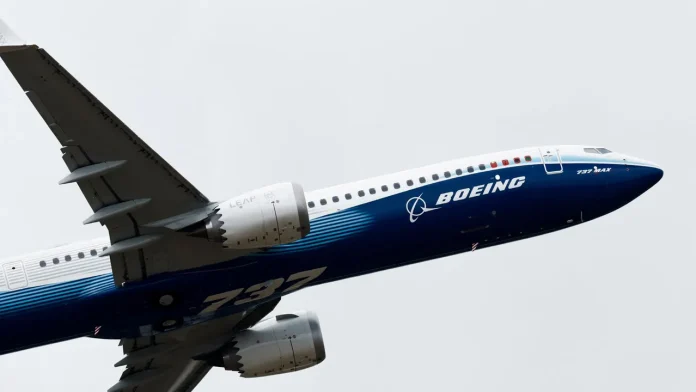The new trade tariffs could more than double the cost of the Boeing 737 Max aircraft, which is estimated at $55 million, for China. Beijing has therefore returned the airliner already painted in the colours of Xiamen Airlines to the Seattle plant.
The Boeing intended for the Chinese carrier became a direct victim of the tariff policy initiated by the Donald Trump administration.
Eyewitnesses reported that a 737 MAX in Xiamen livery had landed at Boeing Field in Seattle the night before. To do so, it flew about 8,000 kilometres, making refuelling stops in Guam and Hawaii. It is one of several 737 MAX aircraft Boeing’s best-selling model that were ordered by the Chinese side, already shipped to the buyer and were awaiting completion of preparation for operation at the completion centre in Zhoushan. It is not known which party made the decision to return them.
According to aviation consultancy IBA, the market value of the new 737 MAX is about $55 million. Earlier in April, Trump raised base tariffs on Chinese imports to 145 per cent, and China responded by imposing a 125 per cent tariff on US goods. Last week, the Chinese government asked the country’s airlines to suspend purchases of aircraft equipment and parts from US companies such as Boeing. Beijing is considering ways to support airlines that lease Boeing planes and have faced explosive cost increases because of the “trade war.”
Impact of the tariff war on airlines
China accounts for about 20 per cent of expected global demand for aircraft over the next two decades. According to Airways Mag, Boeing’s order book is scheduled to deliver 130 aircraft to Chinese companies – both commercial and leasing – by the end of March 2025.
Just hours before Trump revealed his “release day” tariffs, Boeing CEO Kelly Ortberg told a US Senate hearing that the company had sold about 80 per cent of its planes overseas and wanted to avoid a situation where “certain markets become closed to it.” She said at the time the backlog of orders was approximately $0.5 trillion.
Analysts note that the heads of some airlines have already announced their intention to postpone the planned expansion of the fleet of aircraft because of unwillingness to pay the tariffs raised by Trump. In particular, Michael O’Leary, CEO of budget airline Ryanair, told the Financial Times that the carrier was to receive 25 Boeing aircraft from August 2025, but decided not to proceed with this delivery in the hope that “common sense will prevail.”
